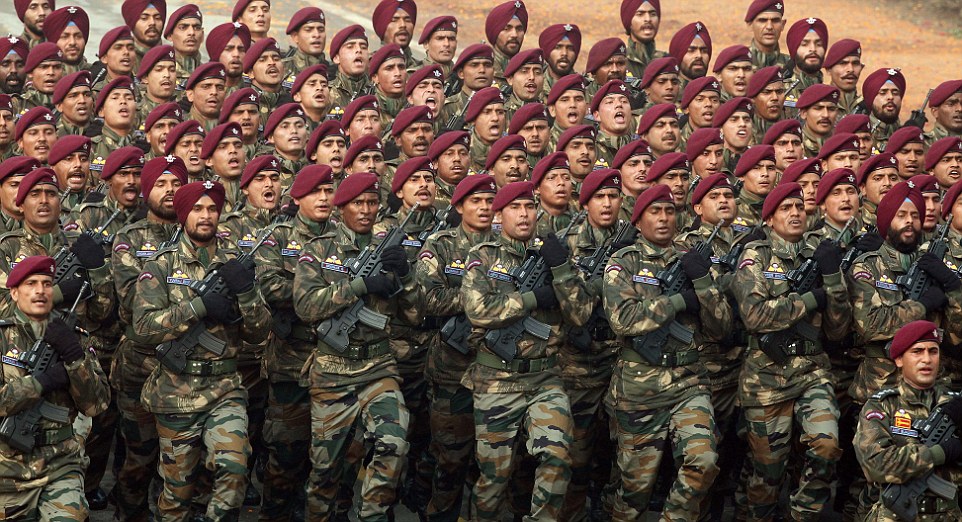
CDS will need maturity to overcome resistance from Services, bureaucracy

In a major reform of the country’s military leadership, the government has attempted to define the role of the Chief of Defence Staff (CDS) to ensure greater operational synergy and financial management between the Army, Air Force and Navy. Towards this objective, the government will create a new organisation called the Department of Military Affairs (DMA) with the CDS as its head.
The DMA will deal with the armed forces and their headquarters, besides handle Territorial Army, civil works and “jointness” in procurement related to the three armed services. However, the defence secretary will continue to manage capital acquisitions or big ticket items like aircraft, submarines and battle tanks. The DMA is also tasked to restructure existing military commands and establish new joint/theatre commands.
The CDS, besides being the head of the DMA, will also be the Permanent Chairman of the Chiefs of Staff Committee (PCCOSC) and act as the Principal Military Adviser to the Union defence minister on all tri-services matters.
The three Chiefs will continue to advise the Defence minister on matters related to their respective services. The CDS will not exercise any military command, including over the three service chiefs.
As the Permanent Chairman of Chiefs of Staff Committee, the CDS will administer tri-services organisations, especially the cyber and space commands. Apart from other functions of the erstwhile Chairman Chiefs of Staff Committee, the CDS will also infuse “jointness” or synergy through inter-agency channels in operations, training, logistics and support requirements of the three services, within three years of assuming office. The CDS will only function as a ‘staff officer’ with advisory/administrative duties, but won’t have any command functions.
Also read | Why does India need a Chief of Defence Staff?
The DMA will be an adjunct to the Ministry of Defence (MoD) and the CDS is first among the other service chiefs. As PCCOSC, he is the principal military advisor to the defence minister, which constitutes little or no change to previous practices.
Till today the defence secretary was considered the senior-most bureaucrat to head the ministry of defence, which will not undergo any change. The defence secretary will delegate those staff functions related to the role assigned to the DMA. Also since the responsibility of the defence of the country still rests with the ministry of defence and the Defence Secretary, and not with the DMA and it appears that the CDS is an ‘upgraded chief of Integrated Defence Staff to the Chairman Chiefs of Staff Committee (CISC) who will be given the requisite staff and powers to carry out the tasks assigned to him.
Despite this dilution in the role of the CDS, it is still a step in the right direction of much-needed reform in higher defence organisation. These changes in the organisation should now facilitate reforms that have not taken place due to narrow-minded parochial service interests. The CDS and defence secretary will also have to overcome significant internal resistance to the division of duties and overlaps in the areas of reassigned administrative and fiscal responsibility.
It would have been ideal if the CDS was placed above the Service Chiefs and mandated to be responsible for the ‘Defence of India’ as per the amended ‘Rules of Business’. The existing Integrated Defence Staff (IDS) could have provided some of the experienced staff for the DMA under the CDS and should have been integrated with the ministry of defence with military officers from each service working in unison with civilian officers in the ministry of defence.
The CDS should also have been placed as the Principal Advisor to the defence minister, and the PM. The CDS should also head the Defence Procurement Committee and not be merely be a member. This joint integrated structure with its component staff from the Central Police Organisations (CPOs) is the need of the hour in the reality of today’s threat-ridden strategic environment which spans many dimensions and needs swift and informed decisions.
Now, the ministry of defence is predominantly staffed with bureaucrats who are militarily illiterate and hampers the decision making process. Therefore, the need to create a defence cadre in the IAS would provide professional decision making in the ministry of defence.
The first CDS should be a professional and mature personality who has the requisite background, experience and initiative to effect change. He will not only have to manage his own organisation, but must also overcome the resistance from the individual Services as well as the civil bureaucracy. He will need big boots.
(Bidanda Chengappa is a Professor of International Relations and Strategic Studies at the Christ Deemed to be University, Bengaluru and K Surendranath is a retired Lieutenant-General)
(The Federal seeks to present views and opinions from all sides of the spectrum. The information, ideas or opinions in the articles are of the author and do not necessarily reflect the views of The Federal.)


